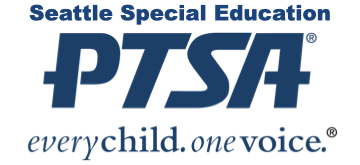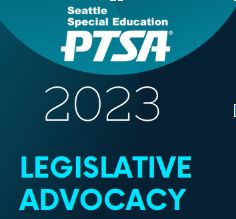CALL TO ACTION ALERT!
Send your support of House Bill 1436 and Senate Bill 5311 directly to your legislators by submitting your comment!
April 14, 2023, letter to Washington state legislators:
Re: Funding education for students with disabilities is a matter of civil rights!
Dear Senators and Representatives,
We ask that you fund special education using the special education funding multiplier proposed in the Senate’s budget. This funding is necessary, and would be considered a down payment on the gap in Special Education funding. If Special Education is a priority, it must be funded like a priority, and the increase in funding must start now. While you wait to figure out the funding, Washington’s children are growing up and aging out of school. Do not ask them to continue to pay for your delays with their futures.
Phasing in special education funding over 5 years means that our current 7th graders will have left the K-12 education system and their education will never be completely funded. Our disabled children need access to education now when they are in school, not later.
The value of education lies in what resources are allocated to the education of children and what we pay for. The McCleary decision found that the State, as its paramount duty, must amply fund the actual costs of basic education for every child in Washington State from regular and dependable tax sources – yet we continue to be stuck in the same situation. Children continue to suffer from the lack of responsibility of elected decision-makers to uphold their moral agreements.
As of now, Washington school districts are required to meet an unfunded mandate.
- Without the funding that covers the actual cost of identification of students with disabilities and services they would and should qualify for under Part B of the Individuals with Disabilities Education Act (IDEA), you are making it impossible for OSPI to support school districts.
- Your decisions now impact whether they can be successful, healthy, and productive members of society, or whether we fail them, and their needs go unmet, causing trauma and setting them on the school-to-prison pipeline track. In a slightly better scenario, they “graduate to the couch.”
- Recent data shows that 207 of all 295 districts had an enrollment of 16% and most of them had more than 20% of students who qualified for special education services. That’s two-thirds of all WA districts whose reality exceeds the arbitrary 13.5% enrollment cap on funding supports for disabled students.
- Districts across the entire state, those with an enrollment of over 50,000 students and those with less than 10 students, need adequate funding for the students they serve whether or not they are able to pass a levy!
Equitable identification of students with disabilities and special education services is not something special or extra. It’s Basic education as part of a disabled child’s federally protected civil rights. With inadequate funding, school district staff are forced to make discriminatory choices.
- In order for school districts to be able to provide disabled children with appropriate services, these children need to be identified through an appropriate and comprehensive evaluation.
- School districts, then, are tasked with identifying students with disabilities – but without the ability to pay for the services these students require. There is a glaring conflict of interest.
- The party responsible for providing costly services is also the one making decisions about what assessment tools to use, which areas to evaluate, and which recommendations for services to share with school teams.
- Schools are impacted by understaffing, lack of professional development, and availability of high-quality evaluation instruments.
- Even with the best intentions, an administrator who knows the budget doesn’t cover services a student needs is inherently conflicted about trying to spread the budget even further for additional students. This is how decisions get made based on an insufficient budget as opposed to the needs of disabled children.
We are asking that you end limiting special education funding to no more than 15% of a school district’s student enrollment regardless of how many may be needing special education evaluations and services, and stop breaking the Constitutional promise by Washington state of equal opportunity. Setting a limit on funding for the education of disabled children tells them and all of us, through action if not words, that disabled students do not deserve the same education as their peers.
Adopt the Senate’s $200 million increase over the level of special education funding. You must fulfill your duty to fund the education of all students in Washington now. Civil Rights are not optional, and our school districts must have the funding it takes to enable all students to access a basic education.
Thank you.
In Community,
Jana Parker, She/Her
Vice President, Legislative Advocacy Committee Chair
Seattle Special Education PTSA

